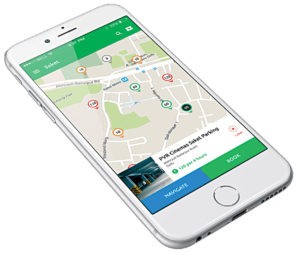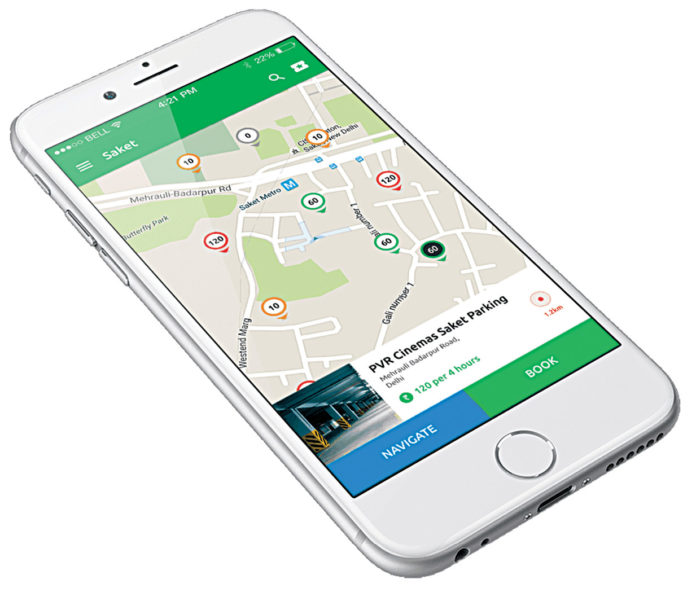Chirag Jain, chief executive officer and co-founder, and Rasik Pansare, chief marketing officer and co-founder, created Get My Parking an Internet of Things (IoT) venture in July 2015. The aim was to transform the parking industry, using data and technology. It offers a smart parking platform that digitises parking information to help consumers, parking management companies and city administrators to manage parking better.
Today, you can book cabs, movies and much more on demand, on your phone. And yet, you are forced to waste time, fuel and energy on parking. Not only do inefficient parking systems result in congestion and increased carbon emissions, these waste your time, lead to lost productivity, economic opportunities and inefficient city services. As per IBM Global Parking Index 2011, an average urban motorist spends 20 minutes or more on the road due to parking problems.
A smart parking solution can make cities economically productive, and less polluting and wasteful of resources. It is not just about managing parking spaces; it is about simplifying transportation. Market opportunity for parking is estimated to be over US$ 100 billion, but most existing solutions are not flexible enough to succeed in emerging markets. Get My Parking attempts to streamline this unorganised industry.

Technical solution
Get My Parking M-PMS. A patent-pending, mobile-based parking management system digitises unorganised parking and integrates the same with access control and payment infrastructure.
Get My Parking smart city dashboard. The dashboard offers data analysis, reports, filters, smart alerts, and inspection and prediction tools, to increase city revenue and help make policies and pricing decisions based on data.
GMP Citizen app. A free app helps users search for availability, book and park hassle-free with mobile-payment and navigation.
Business value creation
Shedding light on the commercial success of Get My Parking, Pansare shares, “We have partnered with Europe’s largest parking operator APCOA to revolutionise parking in 13 countries, to customise and deploy an open IoT platform that provides a seamless mobility experience across all parking touchpoints. This digital platform will be scaled to all 13 countries where APCOA operates, for more than 1.4 million car spaces at over 9000 locations.
“We have pioneered cloud-based digitisation of parking operations in India, with over 320 locations in Delhi-NCR using our solutions. We process on average 70,000 parking transactions on ground every day (more than two million per month). Our revenues have grown 10 times annually. We will break even operationally in the upcoming fiscal year.”
Growth challenges
The founders had no prior experience in the parking industry. Despite the passion to solve the problem, they had a hard time understanding ground scenarios and had to get their hands dirty, spending 14 hours daily at parking lots. Even today, the team, which now has 70-plus members, is constantly on the frontline, leading the parking revolution.
Initially, the founders faced hurdles in terms of gaining trust of parking operators and proving the value of digitisation. Clients they worked with had never interfaced with modern technology. This created a bias in their perception. But through persistence and ingenuity, the team made them ardent advocates of the impact of their technology.
Other challenges included generic startup problems such as hiring talent, scaling up, optimising sales cycles and so on.
The road ahead
Jain is focussed on going global. He says, “We have plans to be in 25 countries by 2020. We are on our track to be the top parking technology company in terms of number of transactions processed globally. Machine learning and artificial intelligence (AI) are the areas where we are putting our innovation efforts.
“Our frugal technology digitises any type of parking at the most affordable price. Our suite of solutions integrates a complete smart parking ecosystem, which serves all stakeholders involved, to organise the fragmented and chaotic industry with data and execution.”










